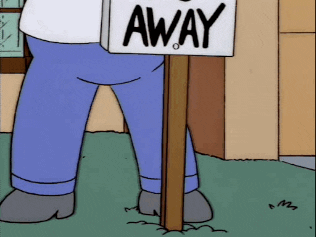#SettingBoundaries
Explore tagged Tumblr posts
Text
Removing myself from all situations where I don’t feel loved, supported, appreciated, or respected.
#selflove#selfrespect#standupforyourself#knowyourworth#positivevibesonly#cleanse#detox#cuttingties#settingboundaries#prioritizingme#choosy#intuition#listeningtomyheart#nonnegotiable#dealbreaker#redflag#selfcare#peaceofmind#nontoxic#healthyrelationships#positivepeople#goodenergy#protectyourpeace#honorself#selfpreservation
60 notes
·
View notes
Text

May 01, 2024 @ 02:05 AM, Wednesday
In order to leave the house, I had to accept that my relationshit with my sibling’s significant other had deteriorated beyond repair.
My mother chose to side with him, which upset me. When I read the private message between my sister and nephew about when I would be leaving, it confirmed my decision! She also called me a disrespectful name and used my first name for the first time, instead of calling me 'Kuya.' Because of this disrespect, I am cutting off communication with her.
I take pride in myself and refuse to be treated poorly, especially by someone I care about.
3 notes
·
View notes
Text
setting boundaries.
no longer giving people the space or opportunity to disrespect me, my lifestyle, my partner, my goals, my intelligence, my thoughts, my opinions, my work choice, what i do and how i do things.
15 notes
·
View notes
Text

self-care means protecting myself from STDs and fuckboys alike. i’m cutting back on weed too… a cool person’s pussy deserves a clear mind.
#authenticliving#settingboundaries#beyourself#nofilter#keepingitreal#honestyhour#boundaries#selfrespect#authenticself#liveauthentic#unapologeticallyme#healthyboundaries#selfworth#liveyourtruth#speakyourtruth#healthyrelationships#selflove#truthteller#respectyourself#nofakelove#authenticityrules#boundariesarehealthy#honestliving#truthbomb#selfcare#liveyourbestlife#ketamene#shrooms#mushrooms#psychedelische therapie
0 notes
Text
He Wants Me to Sleep Over—What Does It Mean and Am I Ready?
If you’ve been in a relationship for a while, you’ve probably started hitting some milestones. Maybe you’ve had your first kiss, met each other's friends, or even dropped the “L” word. But when your boyfriend asks you to sleep over, you might find yourself pausing and wondering, What does this mean? Am I ready for this step?
These are valid questions, and honestly, you’re not alone. Having your boyfriend invite you to spend the night can stir up excitement, curiosity, and maybe even a bit of nervousness. It’s a significant moment, and it’s okay to take your time processing it. Let's break this down together, explore what it could mean, and figure out how to decide if this is the right time for you.
Why He Might Want You to Sleep Over
When your boyfriend asks you to stay the night, it’s not just about convenience or avoiding a late-night drive home. Often, staying over signifies a deeper step in the relationship. It might mean he’s ready to spend more intimate time with you—not just physically, but emotionally, too. Sharing a bed with someone isn’t just about sleeping; it’s about closeness and trust.
Of course, every relationship is different. For some, this moment might feel casual, while for others, it could be a sign of moving things to the next level. The key here is to figure out what it means for you and your partner as a couple.
How to Decide If You're Comfortable
Before packing your overnight bag, take a moment to reflect on your feelings. Are you excited about the idea? Or do you feel hesitant? Your gut instinct is often a strong indicator of whether you’re truly ready to take this step. Here are a few questions to ask yourself that might help clarify your thoughts:
Do I trust him completely? Emotional and physical safety are fundamental. Do you feel secure in sharing such a vulnerable moment with him? Trust is the foundation of every healthy relationship.
Have we communicated about this? Have you and your boyfriend talked about what this would mean? It’s important to ensure you're on the same page and have clear expectations.
Does this align with my values and comfort level? Every person and every relationship is different. Make sure this decision feels right for you, independent of external pressures or expectations.
Communicating Your Boundaries
It’s okay if you’re not ready yet. This doesn’t mean something is wrong with your relationship or that you’re not as committed as he is. It just means you need time to feel 100% comfortable—and that’s perfectly valid.
If he’s truly the right partner for you, he’ll respect your decision and won’t pressure you to move faster than you’d like. The best approach is open and honest communication. You could say something like, “I’m so flattered you want me to stay the night, but I think I need a little more time to feel ready for that. I hope you understand.”
Setting boundaries is also about protecting your mental and emotional well-being. There’s no timeline for these moments—they should happen naturally and when you’re both in agreement.
Signs You Might Be Ready
If you’re unsure about whether you want to take this step, here are a few signs that could suggest you’re ready:
You Feel Comfortable and Excited: If the idea of staying over feels natural and exciting rather than nerve-wracking, you might be in a good place to say yes.
Communication Is Strong: You and your boyfriend have talked openly about what this means and have set mutual ground rules to ensure you’re both comfortable.
You Feel Secure in Your Relationship: If trust has been established and you feel confident in where your relationship is headed, this might be the right time to spend the night.
How This Blog Can Help
If you’re still feeling torn or unsure, this amazing blog post has you covered. It dives into why your boyfriend might be asking you to spend the night and provides helpful advice on figuring out whether you’re ready. It also talks about setting boundaries and making decisions that align with your values.
Sometimes, it can be reassuring to read through someone else's perspective and get a sense of clarity. There’s no pressure to decide immediately—take all the time you need to make the decision that’s yours and yours alone.
Final Thoughts
When your boyfriend wants you to sleep over, it’s about more than just sharing a night together. It’s an emotional and personal step that requires trust, communication, and mutual understanding. Don’t rush the process. Listen to yourself, talk openly with your partner, and make the decision that feels best for you.
Remember, relationships thrive on mutual respect, patience, and love. Whether you decide to stay over or not, trust that your feelings are valid, and the right person will honor them.
Looking for more thoughtful advice? Check out the full blog post here—it’s packed with relatable insights and practical tips to help you sort through your thoughts and make confident choices.
#Relationships#DatingAdvice#SleepoverTalks#BFWantsMeToSleepOver#SettingBoundaries#RelationshipMilestones#LoveAndTrust#HealthyRelationships#PersonalGrowth#RelationshipCommunication
0 notes
Text
Empowering Self-Expression: Overcoming Intrusive Forces
#CoercionTactics#EmpathIntelligence#EmpoweredJourney#GraceAndResilience#HafsaReasoner#HafsaReasonerArticles#innerstrength#IntrusiveForces#MaintainingFocus#OvercomingChallenges#PersonalGrowth#Resilience#SelfAwareness#SelfHelp#settingboundaries#SupportiveRelationships#coercion tactics#empath intelligence#Empowered Journey#grace and resilience#Hafsa Reasoner#Hafsa Reasoner articles#Inner strength#intrusive forces#maintaining focus#overcoming challenges#Personal growth#Self-Awareness#Self-help
0 notes
Text
Get Out of Toxic Relationships Ending Harmful Connections

Get Out of Toxic Relationships: A Guide to Recognizing and Ending Harmful Connections
If you're in a toxic relationship, it can be challenging to know how to get out. Toxic relationships can be emotionally and physically draining, and it can be difficult to know where to turn or who to talk to. However, it's important to remember that you deserve to be in a healthy and supportive relationship, and there are steps you can take to leave toxic relationships behind. Recognizing the signs of a toxic relationship is the first step to getting out. These signs can include verbal or physical abuse, controlling behavior, manipulation, and disrespect. If you feel like you're walking on eggshells around your partner, or if you're constantly questioning your own worth or value, it may be time to take a step back and evaluate the relationship. Once you've recognized the signs of a toxic relationship, it's important to create a plan for leaving. This may involve seeking support from friends or family members, reaching out to a therapist or counselor, or finding resources in your community that can help you safely leave the relationship. Remember, leaving toxic relationships can be a difficult and emotional process, but it's important to prioritize your own safety and well-being.

Understanding Toxic Relationships
Toxic relationships can be harmful to your mental and physical well-being. It is important to recognize the signs of a toxic relationship and take steps to get out of it. In this section, we will discuss how to identify toxicity in a relationship and the effects it can have on your mental health. Identifying Toxicity Toxic relationships can take many forms, and it is not always easy to identify them. Here are some signs that may indicate that you are in a toxic relationship: - You feel drained after spending time with your partner - Your partner is controlling and manipulative - Your partner is verbally or physically abusive - Your partner is constantly criticizing you or putting you down - Your partner is jealous or possessive - Your partner is always blaming you for their problems If you recognize any of these signs in your relationship, it is important to take action to protect yourself. Effects on Mental Health Toxic relationships can have a significant impact on your mental health. Here are some of the effects that toxic relationships can have: - Anxiety and depression - Low self-esteem - Difficulty trusting others - Isolation from friends and family - Feeling trapped and helpless - Physical symptoms such as headaches and stomach problems It is important to seek help if you are experiencing any of these symptoms. A therapist or counselor can help you work through the effects of a toxic relationship and develop strategies for moving forward. Remember, you deserve to be in a healthy and supportive relationship. If you are in a toxic relationship, it is never too late to get out and start taking steps towards a happier and healthier future.
Recognizing Your Worth
Recognizing your worth is the first step to getting out of toxic relationships. It's not always easy to see your own value when you're in a relationship that makes you feel small or unimportant. However, it's important to remember that you are a valuable person with unique qualities and strengths. Here are some tips to help you recognize your worth: - Identify your strengths: Make a list of your strengths, talents, and accomplishments. Focus on what you do well and what makes you proud. This will help you see yourself in a more positive light. - Practice self-care: Take care of yourself physically, mentally, and emotionally. This can include things like exercise, healthy eating, meditation, and therapy. When you take care of yourself, you send a message to yourself and others that you are important. - Set boundaries: Boundaries are essential in any healthy relationship. They allow you to protect your time, energy, and emotions. If someone is crossing your boundaries, it's important to speak up and let them know. - Surround yourself with positive people: Spend time with people who lift you up and make you feel good about yourself. This can be friends, family, or even a support group. Being around positive people can help you see your own worth more clearly. Remember, recognizing your worth is a process that takes time and effort. It's not something that happens overnight, but it's worth the effort. When you recognize your worth, you'll be better equipped to leave a toxic relationship and build a healthier, happier life for yourself.

Setting Boundaries
When it comes to getting out of toxic relationships, setting boundaries is a crucial step. Boundaries are limits that you set for yourself and others to protect your physical, emotional, and mental well-being. Here are some ways to set boundaries effectively: Communicating Effectively Communication is key when it comes to setting boundaries. It's important to be clear, direct, and assertive when communicating your boundaries. Here are some tips for effective communication: - Use "I" statements to express how you feel. For example, "I feel uncomfortable when you raise your voice at me." - Be specific about what behaviors are not acceptable. For example, "It's not okay for you to call me names." - Avoid blaming or attacking the other person. Instead, focus on your own feelings and needs. - Listen to the other person's perspective, but don't let them invalidate your boundaries. Learning to Say No Learning to say no is another important aspect of setting boundaries. It can be difficult to say no, especially if you're used to putting other people's needs before your own. Here are some tips for saying no: - Be firm and direct. You don't have to apologize or give a lengthy explanation. - Use "I" statements to express your needs. For example, "I can't do that for you right now because I need to take care of myself." - Remember that saying no is not selfish. It's important to prioritize your own well-being. - Practice saying no in low-stakes situations, like turning down a social invitation, to build your confidence. By setting boundaries and communicating effectively, you can protect yourself from toxic relationships and create healthier relationships with others. Remember that setting boundaries is a process, and it may take time to get comfortable with it. Be patient with yourself, and don't be afraid to seek support from friends, family, or a therapist.
Seeking Professional Help
Seeking professional help is highly recommended for those who are coping with the aftermath of a toxic relationship. It's important to recognize that leaving a toxic relationship can be challenging and may cause emotional distress. A mental health professional can provide guidance and support during this difficult time. A certified mental health counselor can help you plan your exit strategy and provide you with tools and resources to help you recover from toxic relationships. They can also help you identify any patterns or behaviors that may have contributed to the toxic relationship and work with you to develop healthy coping mechanisms. In addition to seeking individual counseling, there are also support groups available for those who have left toxic relationships. These groups can provide a safe and supportive environment where you can share your experiences and connect with others who have been through similar situations. It's important to remember that seeking professional help is not a sign of weakness. Rather, it's a brave and proactive step towards healing and moving forward from a toxic relationship.
Developing a Support Network
When you're trying to get out of a toxic relationship, having a strong support network can make all the difference. This network can include friends, family members, therapists, support groups, and anyone else who can provide you with emotional support and guidance. Here are some tips for developing a support network: Identify Your Peeps The first step in building a support network is to identify the people in your life who are supportive and nurturing. These might be close friends, family members, or even co-workers. Make a list of these people and think about how they might be able to help you. Cultivate Your Network Once you've identified the people in your life who can provide you with support, it's important to cultivate those relationships. Reach out to these people regularly, and let them know that you appreciate their support. Make time for them, and be there for them when they need you. Join a Support Group Support groups can be a great way to connect with others who are going through similar experiences. Look for support groups in your area, or consider joining an online support group. These groups can provide you with a sense of community and belonging, and can help you feel less alone. Consider Therapy Therapy can be a powerful tool for healing from a toxic relationship. A therapist can provide you with a safe space to process your emotions, and can help you develop healthy coping mechanisms. Look for a therapist who specializes in trauma or relationship issues. Practice Self-Care Finally, it's important to practice self-care as you're building your support network. Take time for yourself, and do things that make you feel good. This might include exercise, meditation, or spending time in nature. By taking care of yourself, you'll be better able to support others and navigate the challenges of leaving a toxic relationship.
Moving On
Moving on from a toxic relationship can be a challenging process, but it is essential for your mental and emotional well-being. Here are some steps you can take to help you move on: Healing Process The first step in moving on from a toxic relationship is to allow yourself time to heal. It's normal to feel a range of emotions, including sadness, anger, and confusion. Acknowledge your feelings, and give yourself permission to grieve the loss of the relationship. Here are some ways you can facilitate the healing process: - Seek support from friends, family, or a therapist. - Practice self-care by doing things that make you feel good, such as exercising, meditating, or taking a relaxing bath. - Write in a journal to help process your emotions and gain clarity. - Avoid contact with your ex-partner as much as possible to give yourself space and time to heal. Remember, healing is a process, and it takes time. Be patient with yourself and trust that you will get through this. Building Healthy Relationships Once you have given yourself time to heal, you may be ready to start building healthy relationships. Here are some tips to help you create healthy relationships: - Set boundaries: Be clear about what you want and need in a relationship, and communicate your boundaries clearly. - Practice effective communication: Be open and honest with your partner, and listen actively to what they have to say. - Look for red flags: Be aware of warning signs of toxic relationships, such as controlling behavior, manipulation, and lack of respect. - Take it slow: Don't rush into a new relationship. Take the time to get to know the person and build a strong foundation of trust and respect. Remember, you deserve to be in a healthy, loving relationship. By taking the time to heal and build healthy relationships, you can create a fulfilling and happy life for yourself.

Conclusion
In conclusion, leaving toxic relationships is never easy, but it is essential for your mental and emotional well-being. You deserve to be in a healthy and supportive relationship, and it is not your responsibility to fix or change someone else's toxic behavior. Remember that you are not alone in this process. Seek support from friends, family, or a therapist who can provide a safe and non-judgmental space for you to process your emotions and make a plan for moving forward. When ending toxic relationships, it is important to prioritize your safety. If you feel unsafe or fear for your physical well-being, consider reaching out to a domestic violence hotline or seeking legal assistance. Take the time to reflect on what you have learned from this experience and how you can use it to grow and improve in future relationships. Set boundaries and communicate your needs clearly with future partners. Remember that you deserve to be treated with respect and kindness. Finally, be patient and kind with yourself. Healing from the aftermath of toxic relationships takes time and is a process. Celebrate your progress and give yourself grace as you continue to move forward towards a healthier and happier future. Read the full article
#buildinghealthyrelationships#effectivecommunication#endingharmfulconnections#mentalhealtheffects#prioritizesafety#recognizingsigns#seekingsupport#self-carepractices#settingboundaries#toxicrelationships
0 notes
Text
Setting Healthy Boundaries: A Comprehensive Guide to Personal Growth and Wellbeing
In today's fast-paced world, setting boundaries is crucial for maintaining mental health and fostering healthy relationships. This article delves into the realm of boundary-setting through the lens of 15 carefully selected books that offer valuable insights and practical strategies. From renowned authors like Dr. Henry Cloud to emerging voices like Nedra Glover Tawwab, these books cover a wide array of topics related to boundaries, self-care, and personal development.
0 notes
Text
Matthew Danchak Advice on Setting Boundaries for Improved Mental Well-being
Setting boundaries is an essential part of maintaining good mental health. Matthew Danchak, a respected mental health advocate, offers valuable advice on how to set boundaries effectively to improve your mental well-being.
#mentalhealthawareness#settingboundaries#selfcare#mindfulness#selflove#selfrespect#MatthewDanchak#healthyliving#personalrowth
0 notes
Text

Finding a balance between work and personal life is crucial for our well-being. Here are some tips for setting healthy boundaries at work:
- Learn to say "no" when your plate is full.
- Prioritise self-care and personal time.
- Communicate your needs clearly.
- Take breaks to recharge and avoid burnout.
- Delegate tasks and seek support when necessary.
By taking care of yourself, you'll be better equipped to excel in your role and contribute positively to your workplace.
#worklifebalance#healthyboundaries#settinghealthyboundaries#settingboundaries#emotionalwellbeing#selfcare#teenhelporg#teenhelp
1 note
·
View note
Text
Setting Healthy Boundaries: Tips for Maintaining Good Health
The Importance of Setting Healthy Boundaries Hello all, my days have been busy, to say the least. Between work and house chores, my publishing business takes up any free time I have left. Whereas, I’m in the process of writing a non-fiction manuscript about identifying and healing from toxic relationships with a focus on intergenerational trauma. It will cover how to spot a narcissist, what…

View On WordPress
0 notes
Text
I became unreachable to those who had all access & abused it.
#settingboundaries#knowyourworth#selfrespect#selflove#selfcare#movingon#lettinggo#toxicrelationships#abuse#gaslighting#unreachable#inaccessible#closedoff#reserved#detached#distant#isolation#solitude#peaceofmind#learninglesson#nousersfee#limitedaccess#restrictedaccess#selfpreservation
14 notes
·
View notes
Text
Boundary Battles: The Tough Truth About Protecting Your Mental Space!
Explore the #challenges of setting #boundaries later in #relationships and their impact on #mental health. Learn to protect your #emotional space and stay #resilient against resistance.
Setting Boundaries: Navigating the Challenges and Standing Your Ground In my psychotherapy practice and personal life, I’ve observed the complexities of setting boundaries, especially when they’re established later in relationships. Recently, I had to assert my boundaries with someone close, a decision that was long overdue. This experience highlighted several key aspects of boundary-setting,…

View On WordPress
#Assertiveness#BoundarySetting#EmotionalHealth#EmotionalWellbeing#HealthyBoundaries#HealthyRelationships#MentalHealthAwareness#MentalHealthMatters#MentalStrength#MindBodySoul#Mindfulness#PersonalGrowth#ProtectYourPeace#Psychology#Resilience#SelfCare#SelfLove#SettingBoundaries#TherapyTalks#WellnessJourney
0 notes
Text
Love Limbo: I Don't Want a Relationship But I Like Him
Do you need clarification on confusing signals and non-commitment? I don't want a relationship but I like him. This guide reveals the secrets of Love Limbo! Learn emotional self-care, how to set boundaries, achieve fulfillment outside of relationships, and navigate your path confidently.
#DatingTips#SelfLove#LoveLimbo#Relationships#DatingDilemmas#relationshipgoals#EmotionalWellness#SettingBoundaries#PersonalGrowth#NonCommittalAffection#MixedSignals#SelfUnderstanding#relationshipadvice#datingadvice#healthyrelationships
0 notes
Text

anyone who doesn’t respect my pussy rules can fuck right off. i’m empowered by my identity and so are you, whether you are into dicks or pussies.
#authenticliving#settingboundaries#beyourself#nofilter#keepingitreal#honestyhour#boundaries#selfrespect#authenticself#liveauthentic#beyou#unapologeticallyme#healthyboundaries#selfworth#liveyourtruth#authenticlife#realnesswins#speakyourtruth#healthyrelationships#selflove#truthteller#respectyourself#nofakelove#authenticityrules#boundariesarehealthy#honestliving#reallifestories#truthbomb#selfcare#liveyourbestlife
0 notes